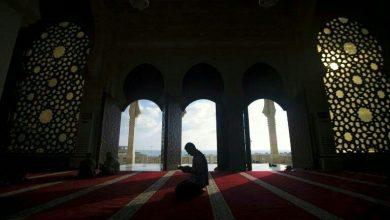DAILY POST #74
Imaam Ibn Hajar Al-‘Asqalaani – rahimahullaah – said:
It is reported from Ibn Umar radiyallaahu anhu- who said – The Messenger of Allah -salallaahu alayhi wasallam said:
“Oppression will turn into darkness on the Day of Resurrection.”
Transmitted and recorded by Imaam Bukhaari in his “Sahih”#2447 and Imaam Muslim in his “Sahih”#2579.
COMMENTARY
The hadith shows the importance of the following:
1. It indicates that oppression is a form of darkness on the day where wealth nor children will be of no avail. The reason for this is when one oppresses another; he turns the life of another person into darkness. For instance, if he steals another person’s property, he changes that person’s life into difficulties, sorrow and gloominess. As a way of paying back his bad deeds, on the Day of Judgment, Allah will darken the life of the oppressor for what he has committed.
That means, on the Day of Judgment, one will have to cross a bridge in order to gain entry into Paradise. The person’s good deeds will act as a light so that he may cross and bridge and enter into Paradise. If one oppresses, or is a kaafir(disbeliever), a hypocrite, or a Muslim with very few good deeds, then he will not receive this necessary brightness that will enable him to cross the bridge.
2. It shows that it is disliked and Haraam(proscribed) to oppress others. And it is even one of the major sins. In the hadith above, The messenger of Allah (salallaahu-alayhi wasallam) compares oppression to darkness on the day of resurrection. This comparison implies that oppression is HARAM (proscribed).
In fact, it is not only haraam but it is worse than haram because it is clear in the sunnah
whenever the Messenger of Allah(salallaahu ‘alayhi wasallam) specifies and proclaimed the punishment of a bad act, it shows that the sin committed is a major sin. If the Prophet (salallaahu ‘alayhi wasallam) does not
mention the punishment of the sin, then it is categorized as a minor sin as explained by some scholars. Thus, this hadith indicates that oppression is major sin.
3. It indicates the reality and severity of the day of Judgment . In Arabic term, it is referred to as
YAWMAl-QIYAMAH, or the ‘day of standing’.
QIYAMAH literally means “to stand up” or “to get set for something”. There are three reasons why the Day of Judgment was given that name as mentioned by some scholars:
♦ we stand up to Allah on that day and are held accountable for our deeds either good or bad.
♦ People will be brought to testify against each other and will get up on that day to do so.
♦ On that Day, the balance will be prepared to weigh the good deeds and bad deeds and people will stand up for that.
♦ Lastly, the hadith acts as an admonition against oppression, due to the gravity of the sin. And basically, there are 2 types of oppression:
» oppressing oneself
» oppressing others
» Oppressing oneself: A person oppresses himself when:
• he commits shirk. Allah says, “Shirk is the biggest of all oppression.” Shirk is classified as an
oppression for two reasons.
Firstly, because a person who associates partner to Allah, is destiny is hell if he dies on it.
Secondly, one of the definitions of shirk is placing something where it doesn’t belong.
When a person commits shirk, he is automatically placing the worship of Allah where it doesn’t belong. Worship is known only to Allah, and no any other being.
• he commits sins.
Allah says in the Quran: “Whoever transgresses the limit ordained by Allah, such persons wrong themselves as well as others.”
Allaahu A’alam!
Baarakallaahu feekum!




